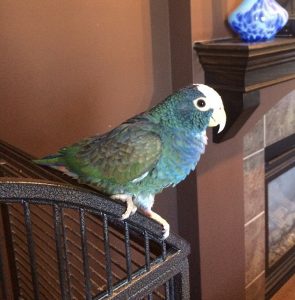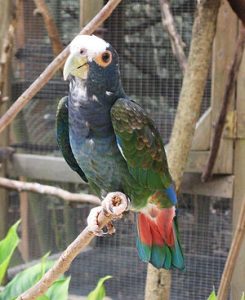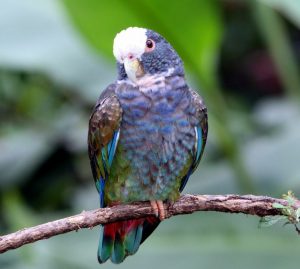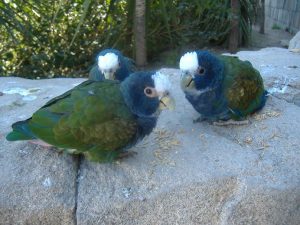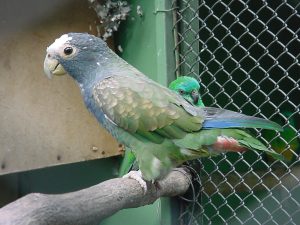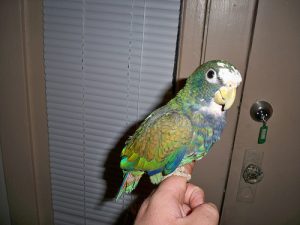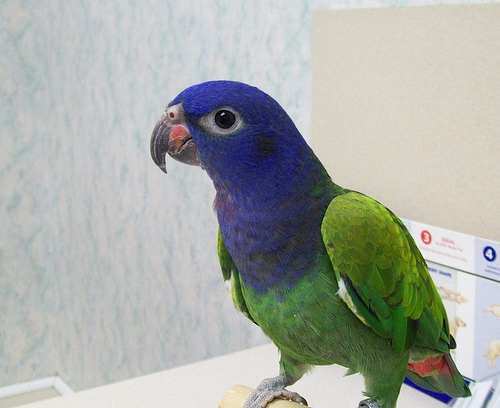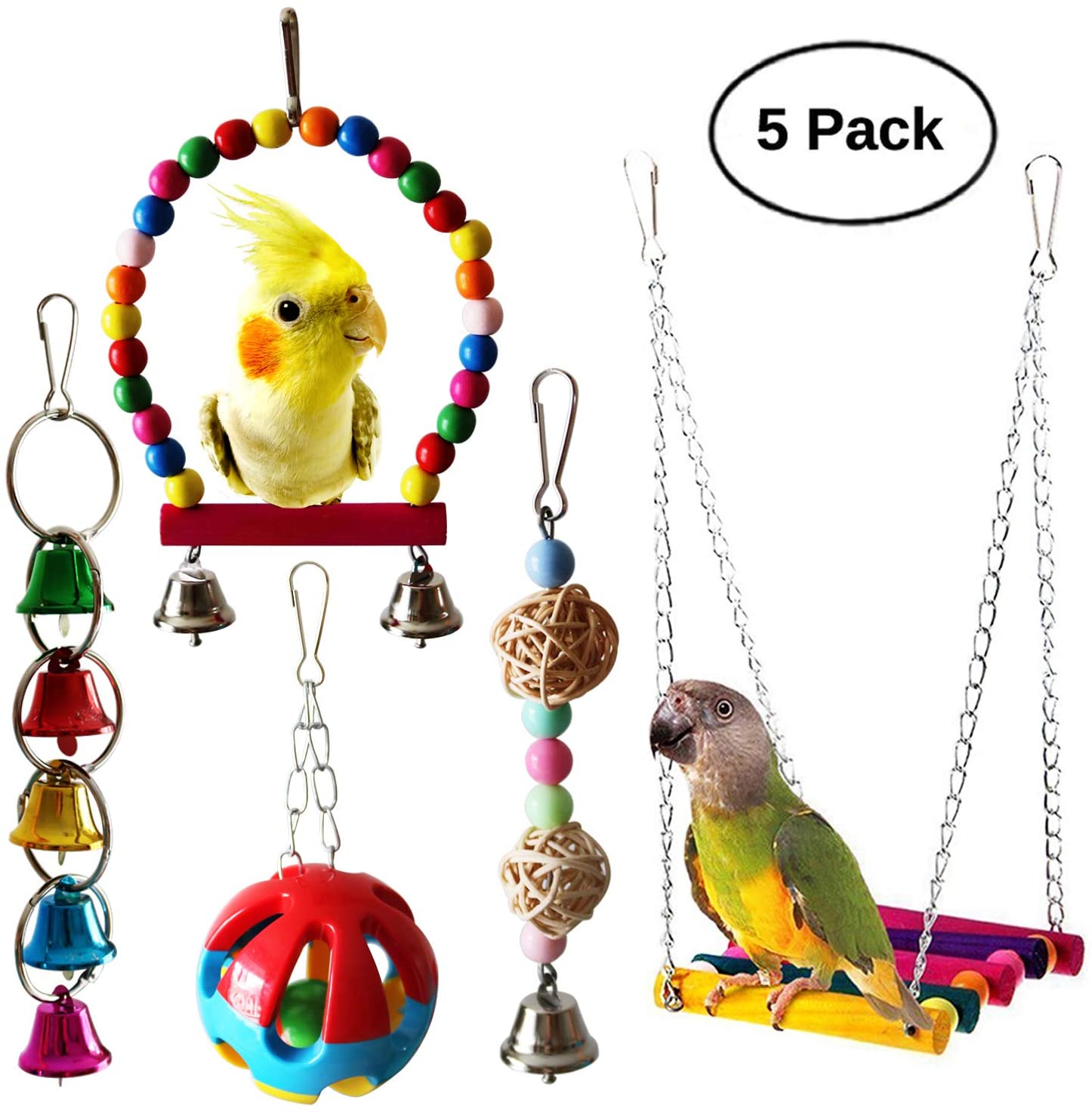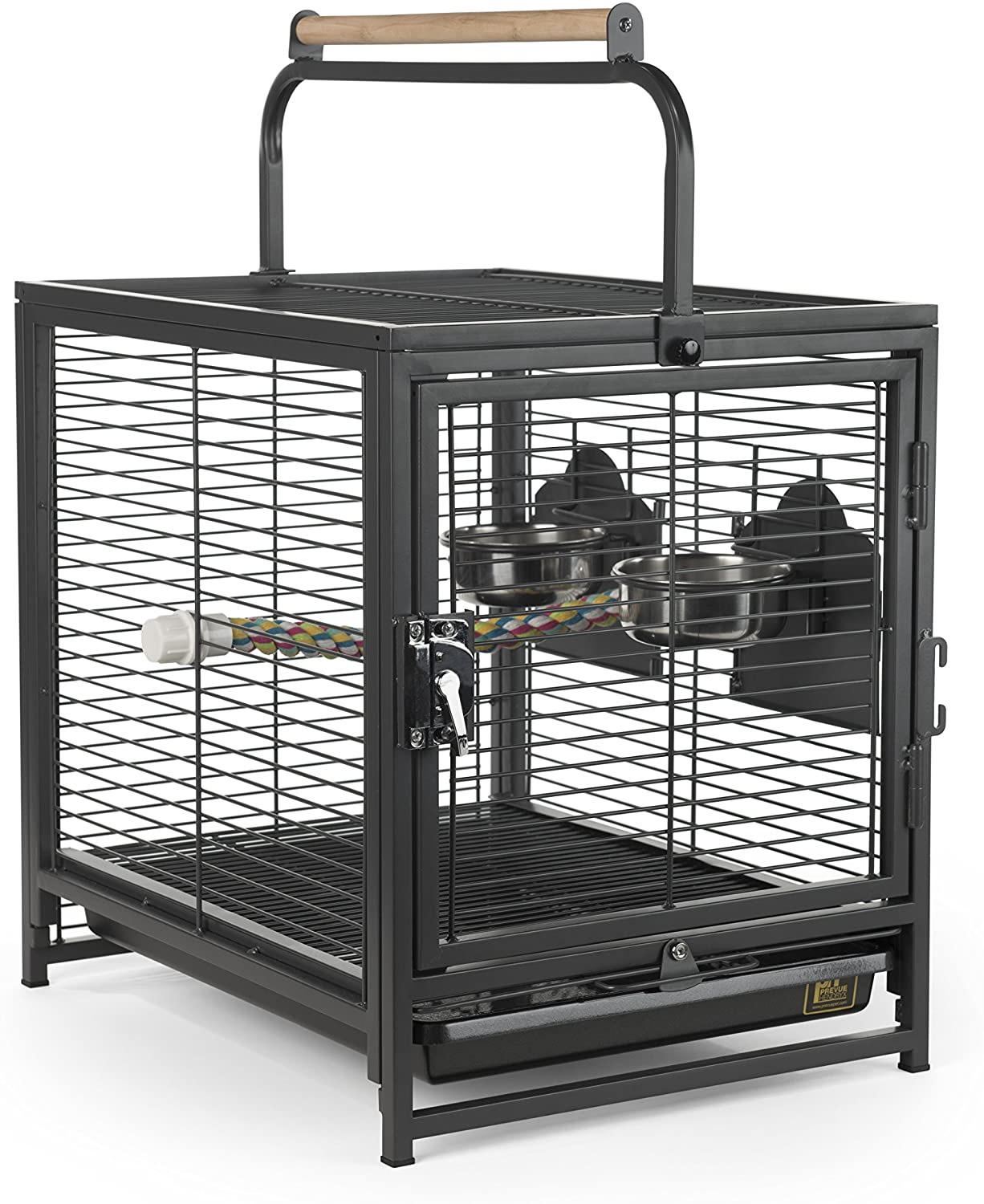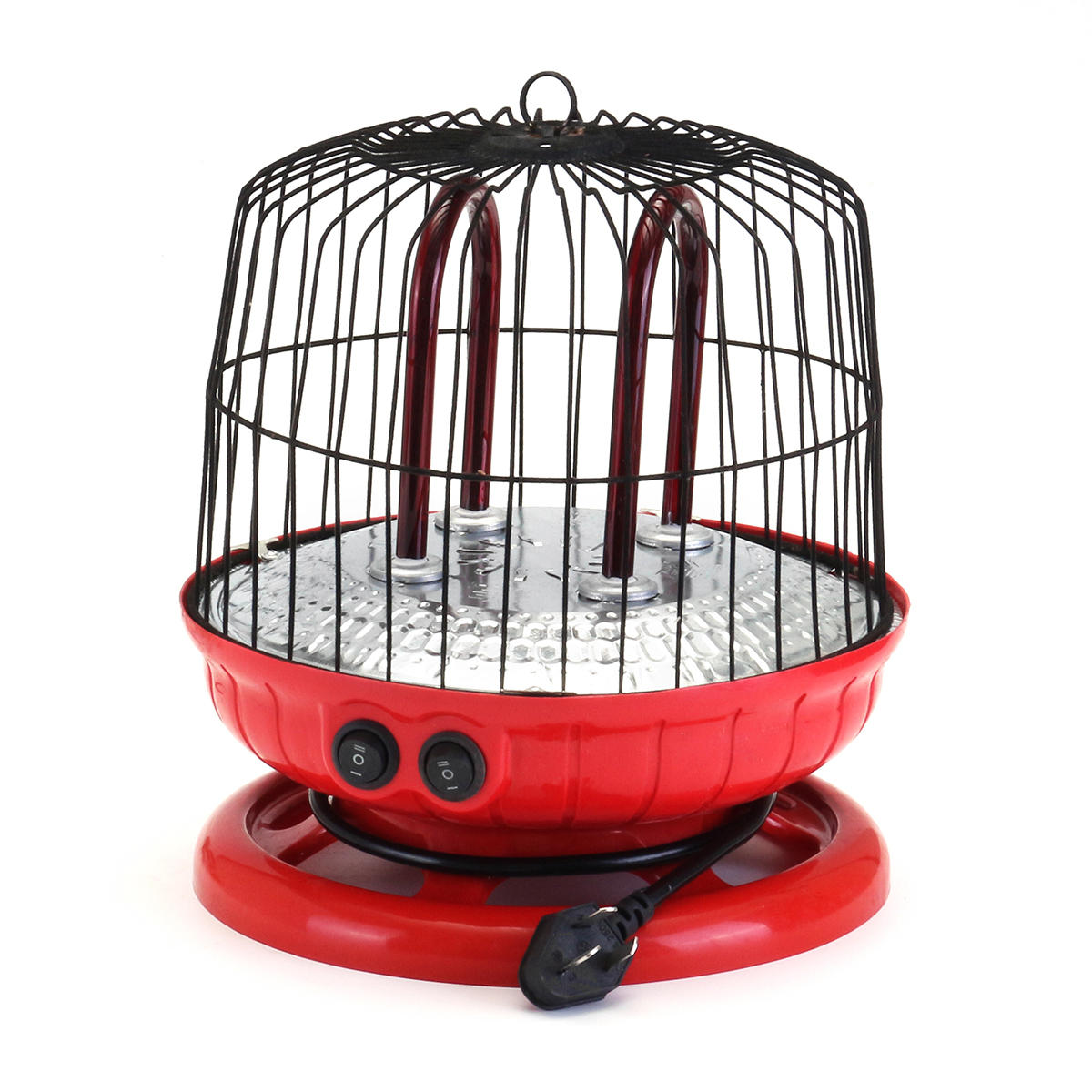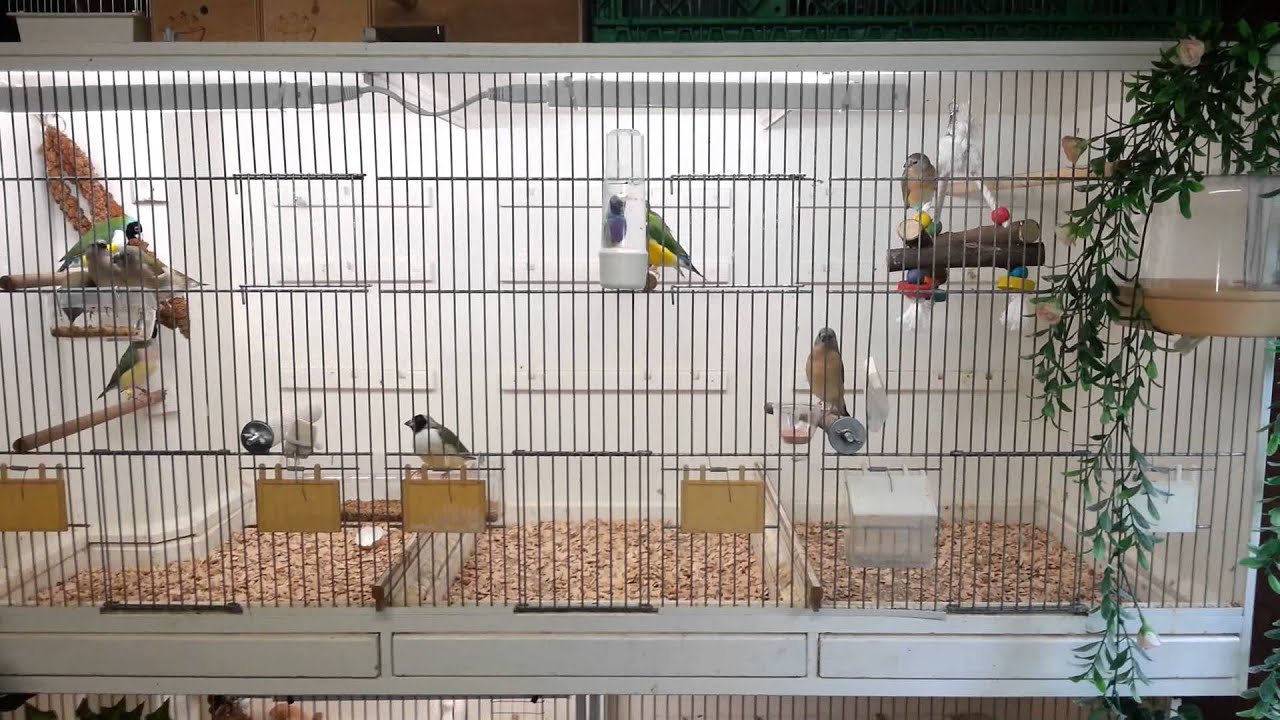The white-capped pionus is a mid-sized parrot native to Mexico, Central and South America.
Scientific Classification |
|
| Kingdom | Animalia |
| Phylum | Chordata |
| Class | Aves |
| Order | Psittaciformes |
| Superfamily | Psittacoidea |
| Family | Psittacidae |
| Subfamily | Arinae |
| Tribe | Androglossini |
| Genus | Pionus |
| Scientific Name | Pionus senilis |
Quick Information |
|
| Also known as | White-crowned parrot |
| Size | 24 cm (9.5 inch) |
| Weight | 220 grams (7.7 ounce) |
| Color | Male – white forehead and throat, dull dark blue colored head, neck, and breast while the upper body is dark green with yellowish patches on the shoulder. The belly is green, and the underwings are blue.
Female – forehead is white but most of the body is dull blue with faded shoulder patches. Juveniles- bluish head, neck and red undertail. The crown is mostly greenish with a little white marking. |
| Distribution | They are found right from east of Mexico to west of Panama |
| Habitat | They predominantly reside in the rainforests of the mountainous region at an altitude of 2,300 m, but they also inhabit the rainforests of the low-land region, outskirts of the forest, dry savannah areas and cocoa plantations. |
| Sounds and calls | Relatively quiet, may emit wheezing sound if frightened or excited. |
| Clutch size | 3-6 |
| Incubation | 26 days |
| Fledging | 60 days |
| Breeding age | 3-5 years |
| Lifespan | 35-45 years |
| Diet | Seeds, berries, nuts, fruits and flowers. May eat maize and grain in farmlands |
| IUCN Conservation Status | Least Concern |
As pets
These birds are lovely pets due to their calm nature and training them is quite easy with proper attention.
Housing
A large cage with ample room to fly shall be ideal for these birds. Though they are not chewers, a durable cage having escape proof latches with locks is recommended. You can keep them in an outdoor cage too so that they can have access to fresh air and sunlight. To keep the bird from boredom, provide toys as well some wooden blocks and branches for them to chew.
Temperature
Try to keep them in warm, cozy ambiance as they are not too comfortable in extreme cold or excess heat.
Temperament & Personality
Although shy natured, they are intelligent and curious birds. If hand raised, they can become an excellent companion. Adult birds, particularly males become attached to their handler and may become aggressive if anyone comes near the handler including their family members.
Feeding
They can be fed seeds, fruits, berries and formulated diet like Kaytee Exact.
Care
For maintaining their skin and plumage, it is advised to bathe them regularly. Misting the bird is a good option after which they should be allowed to get dried in a warm room or directly under sunlight. Do not clip the flight feathers excessively as the birds might fall and injure themselves.
Health problems
Some of the health issues that white-capped pionus may suffer from:
- Aspergillosis
- Bacterial and fungal infections
- Proventricular dilation disease
- Toe necros
- Psittacosis
- Feather-picking
- Poor eating habits
- Vitamin A deficiency
- Mate aggression
Price
White-capped pionus can cost around $800
White Capped Pionus Amiga Talking
Reference


